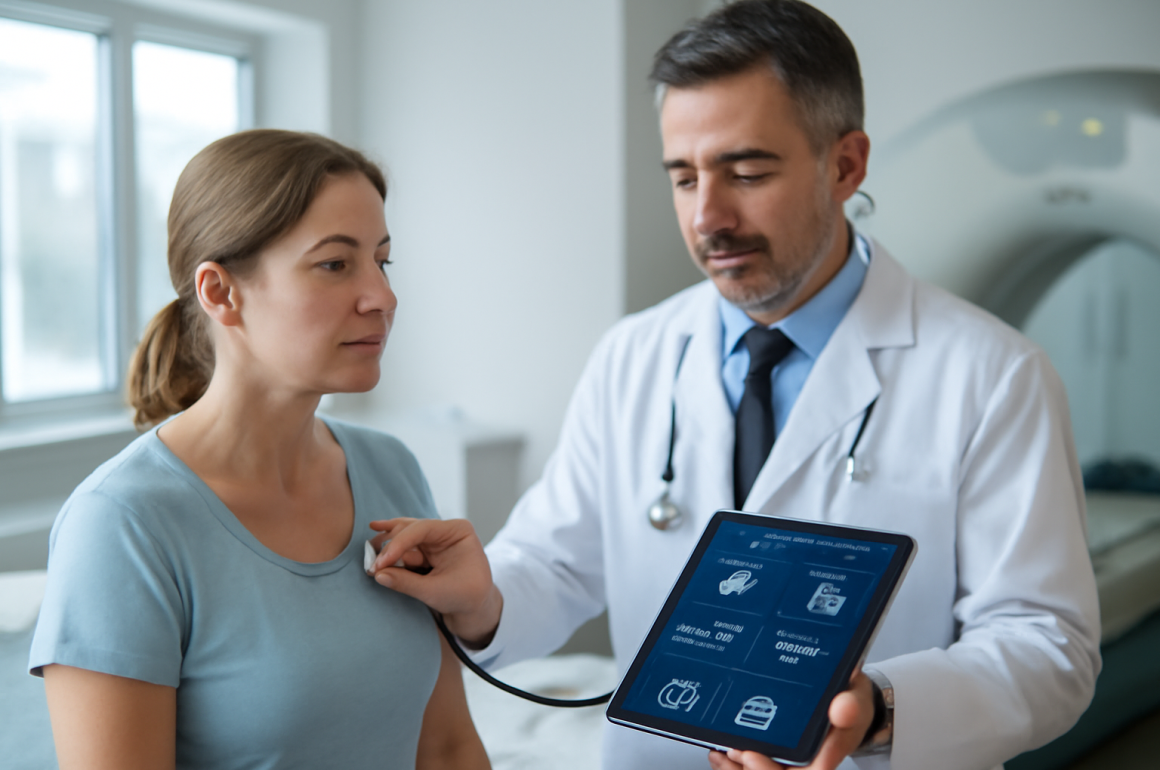The revolution in artificial intelligence promises to improve medical / healthcare diagnostics through early detection of diseases that are more accurate and accessible. Using AI-enabled algorithms, the analysis of medical data such as images, scans or lab results could become comparable to human doctors and sometimes exceeds the latter in individual performance. Consequently, medical diagnostics would become more efficient, accurate, and cost-effective.
The Revolution in Radiology
AI has been breaking ground in radiology through the detection of anomalies in medical imaging such as X-ray, MRI, and CT scans with the greatest of accuracy. For example, having been trained with thousands of mammograms, AI models could identify cases of breast cancer up to 30 percent earlier than the conventional radiologists. Tools like Google’s DeepMind and IBM’s Watson have shown that it was possible to reduce the false positives and false negatives of a diagnosis, which would then enhance the confidence level of a healthcare diagnosis. They assist doctors from potential issues and make the diagnostic process quicker and more reliable.

Early Detection of Neurological Diseases
AI is also used for the detection of neurological disabilities like Alzheimer’s and Parkinson’s disease and multiple sclerosis. Patterns in brain scans can be determined through machine learning algorithms, which are very subtle for the human eye. These patterns can help detect certain diseases early and allow timely intervention, slowing down the disease process and improving patient outcomes. For example, cognitive decline can be detected by such platforms up to years before it becomes symptomatic, leading to more opportunities for proactive care for the patient.
Healthcare Diagnostics for Remote and Rural Areas
A robotic-age diagnostic machine broadened the availability of healthcare into many unserved areas, or mobile application and diagnostic devices can now tap conditions like tuberculosis, pneumonia, and eye problems by using portable AI diagnostics in less-facilitated rural areas where there are hardly any medical specialists. These analyze patient data on the spot and give recommendations and results immediately. This minimizes the delay in diagnosis and costs of health care and ensures that timely medical care is made available to patients, which could save lives in areas less equipped with such resources.

Enhancing Pathology and Laboratory Testing
In pathology, AI algorithms help a lot in the analysis of tissue and blood samples with great precision these systems can detect abnormalities cancer cells at an earlier stage as compared to traditional techniques and they greatly reduce the waiting time for the processing of laboratory results, thereby speeding up the diagnosing and treatment procedures by enabling widespread automation of simple tasks, thereby freeing up time for pathologists to concentrate on more complicated cases, ultimately increasing efficiency and accuracy in laboratory diagnostics.
With the burgeoning role in healthcare diagnostics, artificial intelligence is enabling bridging this gap in health systems globally. These hold promises of an early diagnosis and intervention for potentially life-threatening conditions and have made health proactive and patient-centered.

In conclusion
AI-powered healthcare diagnostics are revolutionizing the way we detect and manage diseases. By enhancing accuracy, speed, and accessibility, these technologies are reshaping the future of medical care. From early detection of neurological conditions to improving radiology and pathology, AI is enabling healthcare professionals to identify potential health risks long before they become critical. In remote and underserved areas, AI’s capabilities are expanding access to healthcare, providing diagnostic support where specialists are scarce. As AI continues to evolve, it promises even greater potential, improving patient outcomes, and transforming healthcare delivery. The collaboration between AI and medical professionals will undoubtedly lead to more personalized, proactive, and efficient care, making healthcare more effective for people worldwide. The future of healthcare is here, and AI is at its core.



 Welcome to this vibrant corner of the internet—"Dreamy Grace!" This lifestyle blog is a space for inspiration, creativity, and connection. Feel free to explore, engage, and share your thoughts—after all, this blog is just as much yours as it is ours. Happy reading!
Welcome to this vibrant corner of the internet—"Dreamy Grace!" This lifestyle blog is a space for inspiration, creativity, and connection. Feel free to explore, engage, and share your thoughts—after all, this blog is just as much yours as it is ours. Happy reading!






